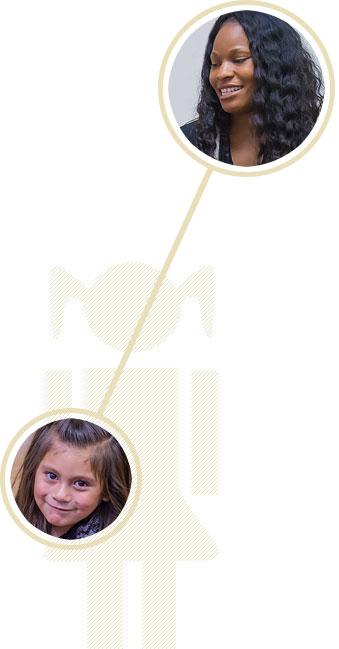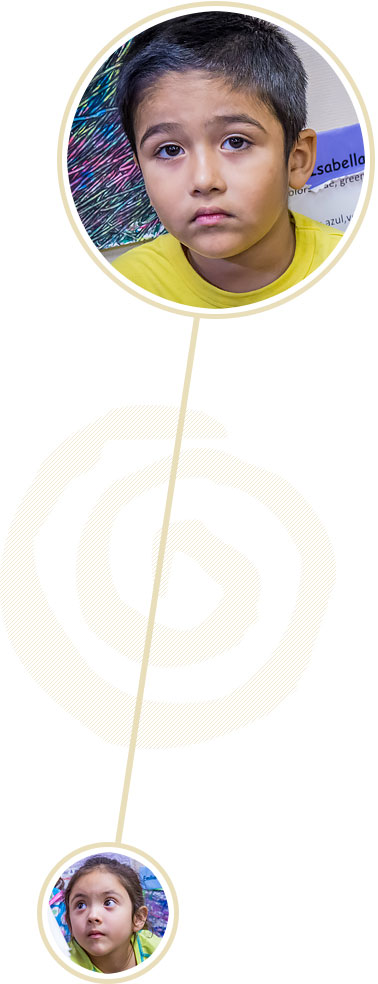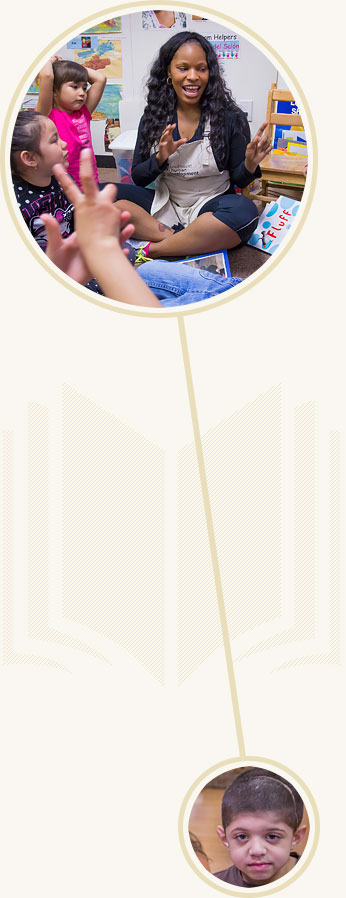Empowering Local Communities, Building Early Childhood Systems
To further the goal of ensuring that more children read at grade level by the end of third grade, Helios is partnering with five communities in Arizona and Florida to address school readiness, summer- learning loss, chronic school absenteeism and other literacy and language challenges over a ten-year period.
Local community systems are being built so more children and families have access to high- quality services that lead to language learning and literacy development.
While the partnerships share similar goals, specific activities are developed by local community stakeholders to reflect the needs and characteristics of each community. The partners coordinate and share best practices to strengthen each local community system with the successes identified by others.
The Foundation invested over $2.3 million in the following five early learning partnerships in Arizona and Florida:
Tampa, Florida – In Tampa Bay, United Way Suncoast works directly with family child care and home providers in four neighborhoods in Hillsborough and Pinellas counties to create a network of support and professional development for those in the field. Community liaisons are embedded in each neighborhood to identify needs and connect practitioners with support services and resources. This initiative values the cultural diversity of each neighborhood and embeds skilled volunteers to work with families to increase children’s early language and literacy preparedness.
Flagstaff, Arizona – United Way of Northern Arizona is focusing its work in three high- poverty neighborhoods: Sunnyside, Southside and Greenlaw. This project, through the use of Family Literacy Coaches shares home activities to improve the family’s literacy development and connects them to community resources. In addition, the work within these three neighborhoods includes connecting the home-based and informal child care practitioners to community organizations, elementary teachers, and other programs that play a vital role to ensure children have the opportunity to come to school with literacy and language development skills that will enable them to be successful in the early grades.
Phoenix, Arizona – In Phoenix, Valley of the Sun United Way is leading an initiative focused in the Balsz and Riverside school districts. The project partners have conducted a community scan of available resources to assess the availability of community resources designed to help parents incorporate early language and literacy activities at home. Specifically selected early language and literacy professional development is provided to teachers and early childhood practitioners. In addition, this initiative is developing a coordinated and aligned plan for Pre-K to Kindergarten transitions.
Tucson, Arizona – United Way of Tucson and Southern Arizona is working with selected school-based public preschool programs to enhance classroom early language and literacy activities and instructional practices through the use of support coaching for early language and literacy development. This partnership is also creating opportunities for alignment and connection between the early education practitioners, other community literacy organizations and K-3 teachers.
Yuma, Arizona – United Way of Yuma County is focusing on the important role that families play in their child’s early learning experiences. Through family engagement programs such as Raising a Reader and Abriendo Puertas as well as summer reading interventions in under resourced neighborhoods, the project will work with parents to provide opportunities for the children to receive interventions and other strategies for them to be successful in the early grades. The program will serve children who may not have had access to activities that prepare them for school entry, those living in poverty, and those who have had limited exposure to books and other literacy resources.
Helios has intentionally created opportunities for the five sites to work independently to address their community needs as well as work collaboratively to share best practices and leverage resources. This approach has enabled the communities to learn from the work of each other and to provide programs that have positively impacted literacy and language development in other sites and to work together to create a system of alignment and coordination in providing educational programs and services for children birth to age eight.




